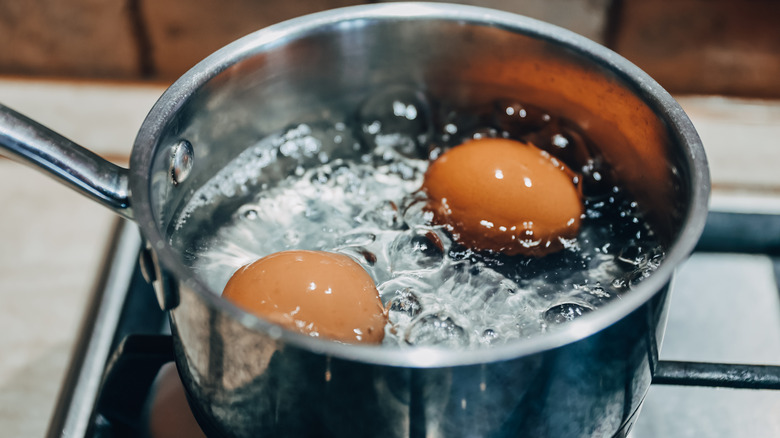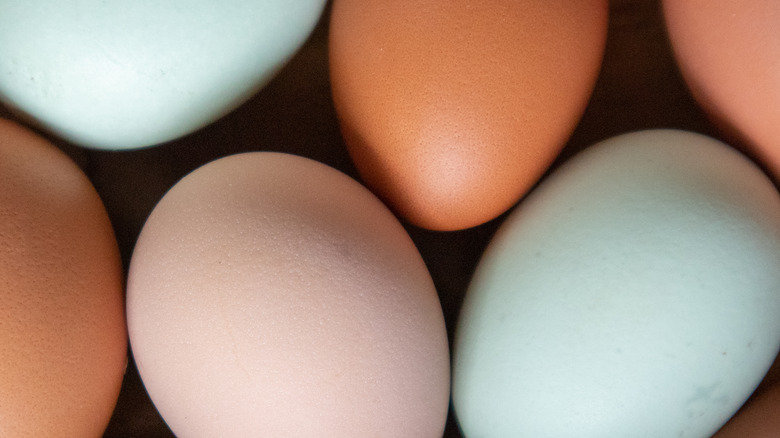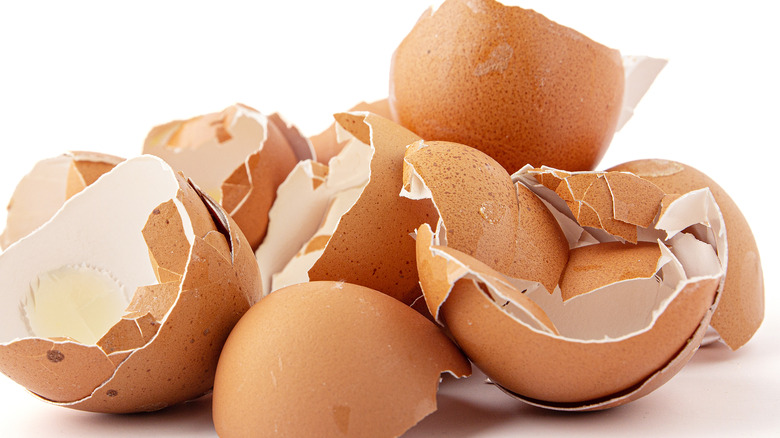The Absolute Best Way To Boil Eggs
Boiled eggs are one of the iconic staples in most American households. Every person has their preference for the so-called perfect boiled egg, and there are innumerable ways to achieve the best of the varying results. Whether you prefer them on the go, in a lovely egg salad, or deviled if you dare — the ideal boiled egg has a smooth, blemish-free exterior that easily slips from its shell as you peel it. It doesn't crack upon submersion in the cooking liquid, and while the doneness of the egg white and yolk is truly preferential, it's easily dictated by the cooking time and the final use of the egg.
Make a jammy, soft egg in just 4 minutes to spoon open into a steaming hot bowl of ramen, or enjoy a gooey 6-minute egg with a little Maldon sea salt and toast, but one minute too long and you may end up with a discolored green yolk. Yikes! It seems the ways in which you can "boil" an egg keep expanding — from steamed to oven-baked and even hard-boiled in the dishwasher. Perfection is hardly attainable, but here are some tips and methods to yield the best results when boiling eggs.
Temperature is key
To start the eggs in cold or hot water is the big question. Although successful results have been achieved using the hot method, Pillsbury swears by starting the eggs from cold water, stating that the cold water method yields better final results and even makes the eggs easier to peel. Ultimately it's up to you to decide which method to stick with, but if you start with boiling water, make sure you've brought your eggs to room temperature before dropping them in. They can easily crack and become waterlogged if a refrigerator-cold egg is submerged in boiling water.
According to Southern Living, simply remove the eggs from the fridge right around the time you start boiling the water and allow them to temper a bit before cooking them. No matter which way you boil your eggs, it seems unanimous that you must always shock your eggs in an ice bath after removing them from the water. Shocking the eggs in an ice bath will stop the cooking so that you can more easily control the final results. The ice bath also helps make the eggs easier to peel.
Peeling your perfect egg
After achieving the desired doneness, the next thing you want to achieve when making hard-boiled eggs is an easy-to-peel shell. Did you ever have a potluck ruined because the deviled eggs were spotted with dimples after being peeled — or rather, torn open? Oddly enough, there is a way to avoid pockmarked peeled eggs: Just use older eggs. Older eggs are much easier to peel than a newly laid dozen. According to Wired, older eggs are easier to peel because they have lower carbon dioxide levels, which leads to the loss of moisture in the egg, causing the air cell at the bottom of the shell to get bigger. As the air cell grows, a layer of air develops between the inner and outer membrane, making the eggs much easier to peel.
Another reason old eggs are easier to peel is that the pH level in the whites of fresh eggs is lower, which causes the shell to stick flush against the membrane tightly. If you only have farm fresh eggs on hand, we recommend adding a bit of baking soda to the boiling water to help increase the pH of the eggs.


